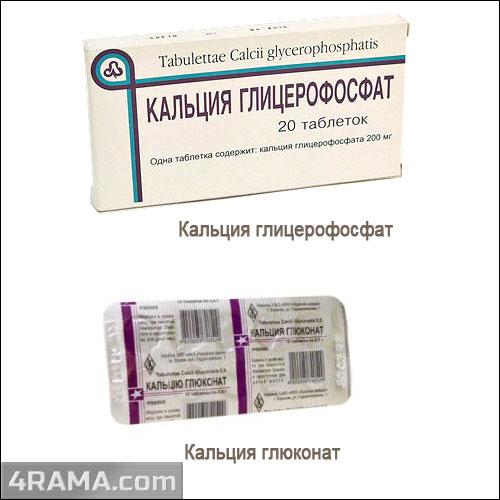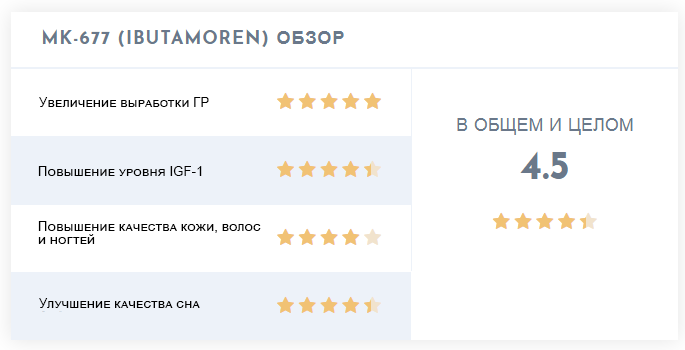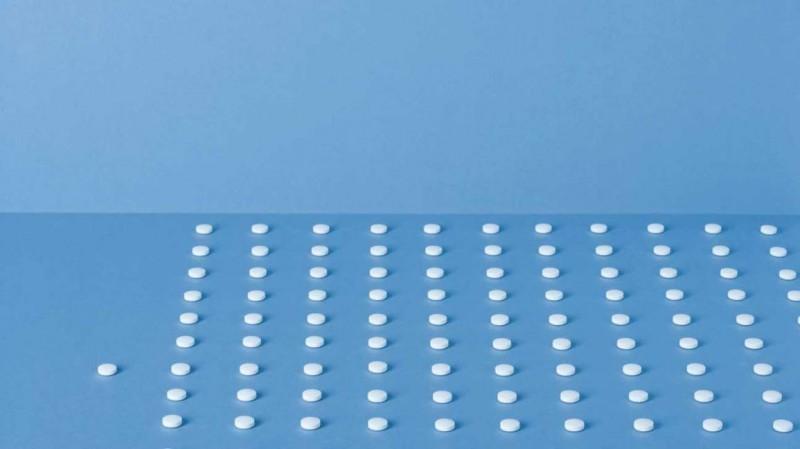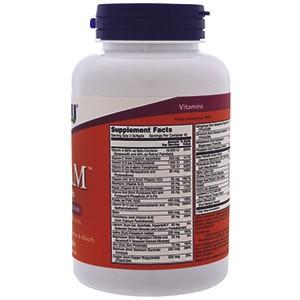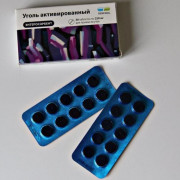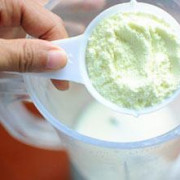5 sulbutiamine (arcalion) benefits + dosage, side effects
Содержание:
- Dosage Notes
- Взаимодействие с системами органов
- Research
- The Research
- What Is Sulbutiamine?
- How It Works
- Терапевтическое применение
- Stacking
- What Is Sulbutiamine?
- История
- Источники и состав
- Benefits and Effects of Sulbutiamine
- Сульбутиамин (Аркалион, Энерион)[править | править код]
- Примечания
- How things go bad:
- Нежелательные эффекты
- Benefits of Sulbutiamine
- Доступность:
- Health Benefits of Sulbutiamine
Dosage Notes
Recommended Sulbutiamine dosage is 400 mg to 1,000 mg per day. Higher doses should be split with one dose in the morning, and the other early afternoon.
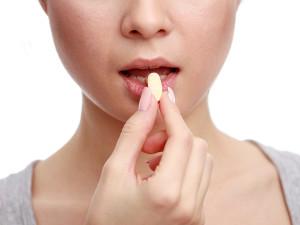 Some neurohackers warn about dosing Sulbutiamine too late in the day. It’s mild ‘stimulant’ qualities could interfere with sleep.
Some neurohackers warn about dosing Sulbutiamine too late in the day. It’s mild ‘stimulant’ qualities could interfere with sleep.
If you’re just starting out with Sulbutiamine, we suggest starting with a low dose and see how your body reacts.
can be a problem with Sulbutiamine. So when taking it for extended periods, you may find it beneficial to on and off the supplement. For example, take Sulbutiamine for 5 days, and take 2 days off before your next dose.
Sulbutiamine powder tastes nasty. So you’d be advised to take it in capsule form. You can save on the cost of Sulbutiamine by making your own capsules.
And Sulbutiamine is fat-soluble so take it with a tablespoon of extra virgin, cold-pressed coconut or olive oil for better absorption.
Взаимодействие с системами органов
Глаза
Ввиду взаимодействий прооксидации и эксайтотоксичностью при глаукоме, таймин не улучшал состояние пациентов с глаукомой, инъекции тиамина улучшали четкость зрения, а также исследовалось взаимодействие сульбутиамина с клетками сетчатки. Исследование in vitro с использованием RGC-5 (подобные нейроцитам) клеток выявило, что сульбутиамин способен сохранять клеткам жизнь вне сыворотки крови, а 10мкм сульбутиамина были также эффективны, как 10мкм тролокса, и данный эффект был заметен уже при 1мкм; данное защитное воздействие было связано с секвестированием увеличения супероксидных и пероксидных радикалов, без влияния на гидроксильные радикалы, а также с относительным увеличением глутатиона.
Research
Because thiamine deficiency causes problems with memory and other cognitive functions, thiamine and analogs like sulbutiamine have been studied in clinical trials in the 1980s and 1990s for age-associated cognitive decline.
Sulbutiamine has been explored in clinical trials as a potential treatment for chronic fatigue syndrome. Studies have also been undertaken to
assess its impact on reversing age-related changes in the circadian system.
The pharmacology of sulbutiamine has been studied in various mice and rats; as of 2014 it appeared that sulbutiamine might be more effective in raising thiamine phosphate levels in the brain than benfotiamine and fursultiamine, but this was not certain.:303 University of Oxford studies indicate that it counteracts apoptotic cell death in retinal ganglion cells, which have been caused by trophic factor deprivation.
In a small 2017 study, sulbutiamine was reported to be effective in reducing fatigue in patients with multiple sclerosis.
The Research
Sulbutiamine Improves Mood
A study at the University of Wales Swansea in the UK worked with 120 young adult females. Study participants took either a placebo or 50 mg thiamine for 2 months. Mood, memory and reaction times were monitored before and after taking the tablets.
The results indicate that after 2 months of thiamine supplementation, the young females:
- Were more clearheaded
- Felt more composed and energetic
- Reaction times improved
- Improved mood.
Sulbutiamine for Chronic Fatigue
If you deal with chronic fatigue, Sulbutiamine may be a better option than another cup of coffee. Or a .
Researchers at the Hospital Saint-Antoine in Paris studied 326 patients. All suffering from chronic fatigue. Patients were given 400 mg or 600 mg of Sulbutiamine daily. Or a placebo in this double-blind, parallel-group study.
Patients were tested on the 7th and 28th days of the trial. Those that used 600 mg of Sulbutiamine had less fatigue.
Sulbutiamine Improves Memory
Poor memory is associated with low levels of activity in the brain. Choline is a to the neurotransmitter acetylcholine (ACh). ACh transmission between neurons helps in memory formation.
Scientists decided to find out if Sulbutiamine could help boost choline uptake. They gave a group of mice Sulbutiamine for 10 days, and then tested their memory. The findings suggested Sulbutiamine improved memory formation. And it was due to an increase in choline activity in the brain.
Another study in France involved giving Sulbutiamine or a saline solution to rats for 9 weeks. The results of this study concluded Sulbutiamine provided better working and episodic memory.
Sulbutiamine Improves Athletic Performance
Many neurohackers use Sulbutiamine for a boost in physical energy. And it’s created some controversy in professional sports.
The Moscow Anti-Doping Center analyzed 16,000 blood samples in a Russian lab in 2009. They were looking for anabolic steroids in athletes.
They found that 100 samples contained Sulbutiamine. These samples were collected in-competition. Indicating that Sulbutiamine was intentionally administered for its “ergogenic and mild stimulating properties”.
Sulbutiamine Improves Erectile Dysfunction
One small study was conducted with 20 patients suffering from psychogenic erectile dysfunction. This type of ED is defined as the inability to achieve or maintain an erection because of psychologic factors.
The men were given a prescription form of Sulbutiamine ‘Enerion’ for 30-days. 16 of the men showed significant improvement based on the international index of erectile function (IIEF).
3 of 6 men with arterial disorders in their penis showed that Sulbutiamine corrected the problem. The study concluded that erectile dysfunction can be effectively treated with Sulbutiamine.
What Is Sulbutiamine?
Japanese scientists developed sulbutiamine in the 60s while exploring treatments for thiamine deficiency. Some brand names for this compound are Enerion and Arcalion [].
Sulbutiamine is synthetically produced by binding two thiamine (vitamin B1) molecules together. Sulbutiamine is more fat-soluble than thiamine, allowing it to pass to the brain easier (cross the blood-brain barrier) [].
Sulbutiamine increases thiamine in the brain more than other forms of thiamine .
Snapshot
Skeptics:
- Most uses lack clinical evidence
- Long-term safety is unknown
How Does it Work?
May Increase thiamine (and thiamine derivative) levels more than thiamine itself .
Increases dopamine (D1) and glutamate activity in decision-making regions of the brain (such as the prefrontal cortex) .
Supports mental health (by changing how glutamate acts on dopamine) .
Reduces cell death in the brain (by increasing glutathione) .
Increases energy use in the brain (by increasing thiamine triphosphate) .
Supports memory formation (by increasing activity in the hippocampus) .
How It Works
Sulbutiamine is a fat-soluble thiamine derivative that readily crosses the blood-brain barrier. In the brain, it stimulates the formation of thiamine triphosphate, which regulates the synaptic transmission of various neurotransmitters, including acetylcholine, glutamate, and dopamine.
Sulbutiamine is considered a centrally-acting cholinergic agent, or substance that promotes the production of choline. It has been shown to inhibit the enzyme acetylcholinesterase, which breaks down the neurotransmitter acetylcholine, and in so doing it prolongs the action of acetylcholine.
It is also believed to upregulate cortical transmission of both glutamate and dopamine, primarily in the prefrontal cortex and hippocampus.
Sulbutiamine is rapidly absorbed after oral administration, widely distributed throughout the body, and excreted mainly in urine.
Sulbutiamine’s onset of action is expected within one day, and the duration of action is about one day. It has a half-life of 5 hours.
Терапевтическое применение
Лечение астении
Сульбутиамин применяется для лечения астении. Астения — это заболевание, характеризующееся хронической усталостью, происхождение которое является церебральным, а не нервно-мышечным. Исследования показали, что Сульбутиамин эффективен в облегчении симптомов астении. В исследовании 1772 пациентов с инфекционным заболеванием и астеническими симптомами, Сульбутиамин принимали в дополнение к антибактериальным средствам в течение 15 дней. Число больных, у которых полностью исчезли все астенические симптомы, составляло 916. Другое исследование показало, что Сульбутиамин эффективен при облегчении астении у пациентов, перенесших простую черепно-мозговую травму. Тем не менее, все еще не определена клиническая эффективность Сульбутиамина для лечения усталости. В исследовании постинфекционных больных, страдающих хронической усталостью, Сульбутиамин не продемонстрировал устойчивых преимуществ по сравнению с плацебо. Тем не менее, авторы этого исследования позволяют предположить, что необходимы дополнительные исследования, чтобы повысить потенциальную полезность Сульбутиамина в лечении хронической усталости.
Память
Несколько исследований показали, что Сульбутиамин улучшает память через потенцирование холинергической, дофаминергической и глутаматергической трансмиссии. При введении Сульбутиамина мышам, они демонстрировали лучшие результаты в тестах на оперантное обучение и в тестах объектного распознавания. Сульбутиамин также уменьшает амнезическое действие Дизоцилпина и улучшает память у больных шизофренией. Недавно было доказано, что Сульбутиамин улучшает повседневную активность у пациентов при ранней и умеренной стадии болезни Альцгеймера при использовании в сочетании с ингибитором ацетилхолинэстеразы. В рандомизированном двойном слепом исследовании пациентов с болезнью Альцгеймера, сочетание Сульбутиамин и Донепезилом улучшал эпизодическую память и ежедневную активность лучше, чем комбинации Донепезила и плацебо.
Психоповеденческое торможение
Было показано, что Сульбутиамин снижает психо-поведенческое торможение: боязливость, робость, избегание и настороженность относительно новых стимулов обычно встречаются у лиц, страдающих от застенчивости или депрессии. В исследовании пациентов, страдающих от большого депрессивного расстройства и сопутствующего психо-поведенческого торможения, пациенты, получавшие Сульбутиамин в течение четырех недель (600 мг в сутки) демонстрировали значительно меньшую недееспособность, чем пациенты в группе плацебо относительно всех аспектов психо-поведенческого торможения (аффективного, когнитивного, эмоционального, поведенческого). Сульбутиамин не имеет антидепрессивного эффекта, и обе группы были сопоставимы по безопасности данных (в частности, прием Сульбутиамина не связан с неадекватным поведением, в том числе попытками самоубийства или маниями). Авторы пришли к выводу, что Сульбутиамин уменьшает психо-поведенческое торможение, наблюдаемое при большом депрессивном расстройстве и может, таким образом, «облегчить реабилитацию больных в их социальном, профессиональном функционирования и семейной жизни».
Эректильная дисфункция
Согласно одному недавнему исследованию, Сульбутиамин эффективен для лечения психогенной эректильной дисфункции. Двадцать пациентов с психогенной эректильной дисфункцией принимали Сульбутиамин в течение тридцати дней. После окончания лечения, у шестнадцати пациентов наблюдалось улучшение в эректильной функции.
Stacking
If you’ve read this far, you may well be wondering what supplements sulbutiamine best stacks with, in order to achieve the maximum positive effects.
Sulbutiamine + Huperzine A + Choline Stack
While one’s mileage may vary, a “starter’s stack,” consisting of sulbutiamine, Huperzine A, and a choline source such as Alpha GPC may be a good start.
1–2x per day
- 200 mg Sulbutiamine
- 200 mcg Huperzine A
- 300 mg Alpha GPC
Huperzine A is a supplement that is derived from the common herb known as Irish Moss. It works by slowing down the decomposition of acetylcholine. By ensuring an optimal level of this vital organic molecule, huperzine A helps to increase your ability to focus and concentrate.
Meanwhile, choline works in concert with Huperzine A and sulbutiamine to ensure maximum memory power and capacity for concentrated attention.
When it comes to pure concentrated choline content, Alpha GPC has the edge, as it contains 40 percent by weight. However, for individuals who are also seeking a supplement to improve motivation, as well as provide relief from anxiety, citicoline may be the better choice, due to its effect on the dopamine receptors in the brain.
Sulbutiamine + Aniracetam + Choline Stack
Sulbutiamine also stacks well with the racetam class of nootropics. Among the racetams, stacking sulbutiamine with aniracetam is a common choice due to aniracetam’s similar effects on cognition and mood.
1–2x per day
- 200 mg Sulbutiamine
- 750 mg Aniracetam
- 300 mg Alpha GPC
What Is Sulbutiamine?
Sulbutiamine is a synthetic derivative of thiamine (vitamin B1) that was developed to address B1 deficiency and chronic fatigue.
It’s also a popular memory-boosting supplement that may enhance mood, motivation, and energy.
Sulbutiamine is a laboratory-created molecule consisting of two thiamine molecules bound together by a sulfur group. This structure makes sulbutiamine more bioavailable than ordinary thiamine and enhances its ability to cross the blood-brain barrier.
The sulbutiamine molecule was initially discovered by Japanese researchers searching for a treatment for beriberi, a nervous disorder caused by thiamine deficiency.
Recent studies indicate that sulbutiamine has potential as a treatment for various types of chronic fatigue.
Sulbutiamine may also benefit healthy people who don’t suffer from chronic fatigue and aren’t lacking in thiamine. It has been shown to boost memory and cognition by promoting increased production of the neurotransmitter acetylcholine, and it may also improve mood and enhance energy by increasing levels of dopamine and glutamate.
История
История Сульбутиамина тесно связана с изучением тиамина в Японии. Дефицит тиамина вызывает расстройство нервной системы под названием бери-бери. До двадцатого века бери-бери было широко распространено в Японии и других азиатских странах в связи с популярностью белого риса в качестве основного продукта питания. Связь между авитаминозом и питанием была впервые отмечена хирургом по имени Takaki Kanehiro. Дополнительная работа привела к открытию тиамина, который был выделен в 1926 году и синтезирован в 1936 году. Создание научно-исследовательского Комитета Витамина B в Японии привело к дополнительному научному исследованию свойств тиамина и его производных.
Первым открытым липофильным производным тиамина был аллитиамин, который был выделен из чеснока (Allium sativum) в 1951 году. Аллиатимин является производным аллил дисульфида. После открытия аллитиамина, при попытке создания веществ с лучшими фармакокинетическими свойствами, было синтезировано несколько дополнительных производных тиамина. Тиамин не способен проникать через плазматическую мембрану, поскольку он имеет положительно заряженный фрагмент тиазол. Вместо этого его необходимо транспортировать через плазматические мембраны при помощи носителей с высоким сродством, при этом скорость транспортировки является низкой. Сульбутиамин преодолевает плохую биодоступность тиамина при пероральном приеме, потому что это соединение обладает высокой липофильностью. Все еще не ясно, когда именно был впервые синтезирован Сульбутиамин, однако самое раннее упоминание о нем в литературе датировано 1973 годом.
Источники и состав
Сульбутиамин представляет собой молекулу, которая состоит из двух молекул тиамина (В1), связанных вместе, подобно пиритинолу, который состоит из двух молекул пиридоксина (В6), связанных вместе. Сульбутиамин также известен, как изобутирил тиамин дисульфид, а торговое название – эреон или аркалион; наиболее часто используется при общей слабости (нейрологической и миопатической), а также для лечения соматической и психической заторможенности. Хотя сульбутиамин и не обладает психостимулирующими свойствами, он воздействует централизованно (на мозг).
Структура
Сульбутиамин синтезируется из тиамина, эстерифицируется после открытия тиазольного кольца тиамина и димеризации дисульфидной составляющей.
Benefits and Effects of Sulbutiamine
Better Memory and Enhanced Cognition
Sulbutiamine effectively addresses cognition problems associated with thiamine deficiency and may also enhance memory and cognition in healthy subjects as well.
Early animal studies confirmed that sulbutiamine improved long-term memory formation and enhanced both working and episodic memory, enabling subjects to retain memories despite the administration of an amnesia-inducing drug.
A study involving early-stage Alzheimer’s patients showed that those who received sulbutiamine in addition to an Alzheimer’s treatment drug (donepezil) for a total of six months improved in episodic memory, attention, and daily life activities.
The memory improvement demonstrated in the studies is likely due to sulbutiamine’s apparent ability to potentiate cholinergic transmissions, mainly in the hippocampus and prefrontal cortex. An increase in available choline upregulates the production of the neurotransmitter acetylcholine, which is strongly associated with all aspects of memory and cognition.
Increase Alertness and Energy Levels
Sulbutiamine has been successfully used to treat a variety of types of fatigue, including post-infection fatigue, fatigue associated with multiple sclerosis, and even unexplained fatigue.
It’s believed that sulbutiamine’s fatigue-fighting capability is related to its ability to upregulate the production of glutamate, the most important excitatory neurotransmitter.
Improve Mood and Reduce Anxiety
Many users say that Sulbutiamine has a positive effect on mood and motivation, reducing anxiety, and creating a general feeling of well-being. Though this aspect of sulbutiamine has not been extensively studied, research appears to confirm these observations.
In addition to enhancing production of the excitatory neurotransmitter glutamate, sulbutiamine has also been shown to upregulate cortical transmissions of dopamine, the neurotransmitter associated with pleasure, reward, and emotional responses. Increasing the levels of these critical brain chemicals could be expected to enhance mood and motivation.
An 8-week study on patients with major depressive disorder concluded that while sulbutiamine had no anti-depressant effect, it did reduce fear and anxiety and helped them function better in their social, professional, and family lives.
Treatment for Thiamine Deficiency
Sulbutiamine is an effective treatment for thiamine deficiency syndrome (beriberi), which can be triggered by a variety of causes ranging from simple dietary insufficiency to aging, illness, and even alcohol dependence.
The symptoms of thiamine deficiency, including fatigue and muscle weakness, cardiovascular issues, and cognitive issues such as brain fog, disorientation, and memory loss, are effectively alleviated or reversed by the administration of sulbutiamine.
May Treat Psychogenic Erectile Dysfunction
In a 2005 Russian study involving 20 men with erectile dysfunction caused by psychological rather than physical factors, a 30-day course of treatment of sulbutiamine resulted in substantial improvement in 16 of the participants.
Сульбутиамин (Аркалион, Энерион)[править | править код]
Сульбутиамин (Аркалион, Энерион) — синтетическое производное тиамина (витамин В1). Сульбутиамин переставляет собой димер двух модифицированных молекул тиамина, что придает ему липофильные свойства и позволяет легко проникать в мозг через гемато-энцефалический барьер. Сульбутиамин был разработан в Японии в попытке создания более мощной формулы витамина В1 за счет повышенной липофильности.
Клинические свойства Сульбутиамина (Аркалион, Энерион) еще не до конца изучены, однако имеющиеся данные говорят о том, что препарат эффективен в лечении астении. Сульбутиамин снижает утомляемость, улучшает память и эректильную функцию. В терапевтических дозах препарат практически не имеет побочных эффектов. Сульбутиамин отпускается без рецепта и может продаваться как пищевая добавка.
Сульбутиамин иногда добавляется в спортивное питание с целью повышения атлетической производительности. Препарат имеет реальный спортивный потенциал и его применение вполне оправдано.
Механизм действияправить | править код
Молекулы сульбутиамина растворимы в жире, поэтому препарат гораздо легче проникает в мозг, чем тиамин. В ходе его метаболизма в головном мозге происходит увеличение уровня тиамина и тиамин фосфат эфира. Сульбутиамин ингибирует холинэстеразу и действует на определенные участки мозга, в частности на ретикулярную формацию, повышая ее активность, что ведет к повышению психической активности, увеличению мотивации и устранению чувства усталости. . Ученые также обнаружили потенциальную холинэргическую активность в гиппокампусе. . Глютаматэргическая активность сульбутиамина позволяет ускорить процесс нервной передачи импульса в префронтальной области головного мозга, что ведет к улучшению мыслительной деятельности и памяти. Кроме того, был обнаружен дополнительный механизм улучшения памяти и мозговой деятельности — активация дофаминовых рецепторов.
Эффекты Сульбутиамина (Аркалион, Энерион)править | править код
Сложный механизм действия Сульбутиамина обуславливает многообразные эффекты препарата:
- Улучшение памяти
- Стимуляция
- Снижение усталости
- Ускорение мыслительных процессов
- Улучшение потенции
Дозы и режим приемаправить | править код
Ощутимый эффект Сульбутиамина проявляется в дозе 800 — 1000 мг в сутки. Известны случаи приема препарата в дозе 2000 мг в сутки, без проявления каких-либо побочных эффектов.
Примечания
- ↑ Tiev KP, Cabane J, Imbert JC (1999). «Treatment of chronic postinfectious fatigue: randomized double-blind study of two doses of sulbutiamine (400-600 mg/day) versus placebo». Rev Med Interne. 20 (10): 912—8. PMID .
- Van Reeth O (1999). «Pharmacologic and therapeutic features of sulbutiamine». Drugs Today (Barc). 35 (3): 187—92. PMID .
- ↑
- Inouye K, Katsura E. «Etiology and pathology of beriberi.» In: Shimazono N, Katsura E, editors. Beriberi and Thiamine Igaku Shoin Ltd (1965) p. 1-28
- ↑
- Lonsdale D (2004). «Thiamine tetrahydrofurfuryl disulfide: a little known therapeutic agent». Med Sci Monit. 10 (9): 199—203. PMID .
- Bettendorff L, Wins P. (1994). «Mechanism of thiamine transport in neuroblastoma cells. Inhibition of a high affinity carrier by sodium channel activators and dependence of thiamine uptake on membrane potential and intracellular ATP». J Biol Chem. 269 (20): 14379—85. PMID .
- Fujihira E, Tarumoto Y, Ajioka M, Mori T, Nakazawa M (1973). «». Yakugaku Zasshi. 93 (3): 388—91. PMID .
- Shah SN; Sulbutiamine Study Group (2003). «Adjuvant role of vitamin B analogue (sulbutiamine) with anti-infective treatment in infection associated asthenia». J Assoc Physicians India. 51: 891—5. PMID .
- Levin OS, Slizkova IuB (2007). «». Zh Nevrol Psikhiatr Im S S Korsakova. 107 (5): 44—8. PMID .
- ↑
- Ollat, H; B Laurent, S Bakchine, BF Michel, J Touchon, B Dubois (2007). «[Effects of the association of sulbutiamine with an acetylcholinesterase inhibitor in early stage and moderate Alzheimer disease». Encephale. 33 (2): 211—15. PMID . Проверено 2009-03-30.
- Dmitriev DG, Gamidov SI, Permiakova OV (2005). «». Urologiia. 1 (1): 32—5. PMID .
- Morra M, Philipszoon HD, D’Andrea G, Cananzi AR, L’Erario R, Milone FF (1993). «Sensory and motor neuropathy caused by excessive ingestion of vitamin B6: a case report». Funct Neurol. 8 (6): 429—32. PMID .
How things go bad:
We depend on our diet for thiamine. Very little thiamine is stored in your body. And depletion can occur within 14 days.
Thiamine deficiency can be caused by alcoholism, Alzheimer’s Disease, anemia, athletes who reduce food intake, cancer, clogged arteries, Crohn’s disease, diabetes, diarrhea and kidney disease. And even a poor diet.
↓ Low thiamine levels can slow creation of ATP
↓ Low thiamine levels can cause problems with memory, learning, recall and perception
↓ Acetylcholine levels decline
All of these changes can happen at any age. And are a product of the food we eat, what we drink, lifestyle habits, the air we breathe and more.
So Sulbutiamine can help age-related decline, as well as a student looking to do better in school. By boosting acetylcholine, and GABA in the brain. And increased brain energy by fueling cell mitochondria with ATP. And building myelin sheaths that protect our neurons.
Нежелательные эффекты
Сульбутиамин редко вызывает нежелательные побочные эффекты, если употребляется в терапевтических дозах. В соответствии с заявлением производителя препарата, может возникать небольшая кожная аллергия. Небольшое поведенческое возбуждение было также замечено у пожилых пациентов. Существует только один отчет, в котором сообщается об осложнениях, возникших от хронической передозировки сульбутиамином. Пациент, страдающий биполярным расстройством, принимал сульбутиамин, так как жаловался на упадок сил. Он решил, что лекарство ему помогает и увеличил ежедневную дозу до 2 г, что было гораздо больше предписанной дозировки. Впоследствии он прекратил применять другие предписанные ему медикаменты, так как настаивал, что сульбутиамин был единственным веществом, помогающим ему. Авторы отчета заключили в итоге, что сульбутиамин может влиять на течение биполярного расстройства. Эффекты хронической передозировки сульбутиамином, таким образом, видимо, схожи с передозировкой витаминами группы B. К примеру, существует только один опубликованный отчет о пациенте, испытывавшем нежелательные побочные эффекты от хронической передозировки пиридоксином (витамин B6), у данного пациента развилась острая сенсорная и средняя моторная нейропатия из-за длительного, чрезмерного злоупотребления медикаментом.
Benefits of Sulbutiamine
The main benefit of sulbutiamine is that it can increase thiamine (vitamin B1) levels in the brain. Specifically, it can do so 2.4 times better than taking straight thiamine itself . Thiamine is an essential nutrient that the brain needs to stave off fatigue (with small deficiencies) all the way to beriberi (with large deficiencies).
One study indicated that sulbutiamine was an effective neuroprotective agent. With thiamine nutrient deficiencies, there is a disruption of synaptic transmission. However, when taking sulbutiamine, it acts as a neuroprotective, saves the synaptic health, and the connections for the long term .
Another series of studies showed that sulbutiamine benefits include improved memory retention (and thus mental performance) . Another test showed object-recognition memory improvements through sulbutiamine studies.
Finally, the synthetic thiamine supplement is able to reduce fatigue by up to 91.37% of the participants who were tested . Considering chronic fatigue and stress are rampant in modern society (especially in the west), it is no wonder this smart drug is being utilized. While the study focused on individuals suffering from multiple sclerosis, it can be easily applied to healthy adults as well.
How Does Sulbutiamine Work?
In basic terms, sulbutiamine works by “tricking” the brain in order to allow more thiamine inside. Sulbutiamine is two thiamine molecules with a small structural difference and synthetically joined. By creating this molecule, it is able to cross the blood-brain barrier and provide 2.4 times as much thiamine to the brain.
For people with deficiencies in thiamine, this nootropic substance is a godsend that can slip past the goalie to create positive change. This is often the case for people who are consuming a Paleo style diet. Most food sources of sulbutiamine are legumes, seeds, and processed foods like breakfast cereal. While a diet high in vegetables (such as spinach), can increase thiamine, it may be necessary to supplement.
The sulbutiamine can thus be an effective nootropic tool for certain dieters who consume primarily meat and vegetables without any processed foods.
Доступность:
Сульбутиамин применяется для симптоматического лечения функциональных астенических состояний при гипо- и авитаминозах, при длительных заболеваниях, после оперативных вмешательств. Отпускается из аптек по рецепту врача.
:Tags
Читать еще: Димедрол (Дифенгидрамин) , Пикеатаннол , Рамелтеон (Розерем) , Тыква обыкновенная , Фадогия (Fadogia agrestis) ,
Список использованной литературы:
Trovero F, et al. Evidence for a modulatory effect of sulbutiamine on glutamatergic and dopaminergic cortical transmissions in the rat brain. Neurosci Lett. (2000)
Determination of sulbutiamine and its disulfide derivatives in human plasma by HPLC using on-line post-column reactors and fluorimetric detection
Bettendorff L, et al. Injection of sulbutiamine induces an increase in thiamine triphosphate in rat tissues. Biochem Pharmacol. (1990)
Kiew KK, et al. Effects of sulbutiamine on diabetic polyneuropathy: an open randomised controlled study in type 2 diabetics. Malays J Med Sci. (2002)
Micheau J, et al. Chronic administration of sulbutiamine improves long term memory formation in mice: possible cholinergic mediation. Pharmacol Biochem Behav. (1985)
Bizot JC, et al. Chronic treatment with sulbutiamine improves memory in an object recognition task and reduces some amnesic effects of dizocilpine in a spatial delayed-non-match-to-sample task. Prog Neuropsychopharmacol Biol Psychiatry. (2005)
Sulbutiamine in the treatment of chronic fatigue in multiple sclerosis
Douzenis A, Michopoulos I, Lykouras L. Sulbutiamine, an ‘innocent’ over the counter drug, interferes with therapeutic outcome of bipolar disorder. World J Biol Psychiatry. (2006)
Asregadoo ER. Blood levels of thiamine and ascorbic acid in chronic open-angle glaucoma. Ann Ophthalmol. (1979)
Sedel F, et al. Thiamine responsive pyruvate dehydrogenase deficiency in an adult with peripheral neuropathy and optic neuropathy. J Neurol Neurosurg Psychiatry. (2008)
Kang KD, et al. Sulbutiamine counteracts trophic factor deprivation induced apoptotic cell death in transformed retinal ganglion cells. Neurochem Res. (2010)
Dmitriev DG, Gamidov SI, Permiakova OV. Clinical efficacy of the drug enerion in the treatment of patients with psychogenic (functional) erectile dysfunction. Urologiia. (2005)
Health Benefits of Sulbutiamine
1) Fatigue
In a study of 1,772 patients with infections and chronic fatigue, sulbutiamine (along with anti-infective treatment) helped with low energy. Fifty-two percent of the patients felt a significant boost in mood and energy [].
326 patients with chronic fatigue (post-infection) were treated with sulbutiamine or a placebo. Some individuals felt an energy boost from sulbutiamine, but the results were not significant [].
Sulbutiamine reduced fatigue by 44% in 341 patients with chronic fatigue, but this study lacked a placebo control [].
In another uncontrolled study of 40 participants, sulbutiamine treatment (400 mg daily for 1 month) greatly improved symptoms of severe depression, anxiety, and fatigue in most patients (75%) [].
36 patients with chronic weakness from posttraumatic disorders were treated with either piracetam or sulbutiamine. Sulbutiamine was more effective in improving energy and functionality than piracetam [].
Fatigue is a major symptom of multiple sclerosis (MS). Sulbutiamine treatment (400 mg daily for 2 months) significantly improved energy levels of 20 MS patients. Once again, the lack of a placebo control makes the results questionable [].
Larger, well-designed clinical trials are needed to verify the therapeutic effects of sulbutiamine for fatigue.
Insufficient Evidence:
No valid clinical evidence supports the use of sulbutiamine for any of the conditions in this section. Below is a summary of up-to-date animal studies, cell-based research, or low-quality clinical trials which should spark further investigation. However, you shouldn’t interpret them as supportive of any health benefit.
2) Memory Improvement
Sulbutiamine, when used with donepezil, improved memory in a study of 26 patients with Alzheimer’s Disease [].
Sulbutiamine improved long-term memory in rats. This is a result of boosting neurotransmitters (such as choline), which may increase memory retention .
3) Diabetic Neuropathy
Nerve damage can be caused by high blood sugar levels in individuals with diabetes. A 6-week treatment of sulbutiamine (400 mg daily) in 15 patients with diabetes significantly improved nerve and muscle function [].
4) Erectile Dysfunction
Sulbutiamine treatment for 30 days restored sexual performance in 16 patients out of 20 with erectile dysfunction, but the study lacked a placebo control [].
5) Indigestion
In a study of 33 patients, sulbutiamine restored digestion after kidney surgery. It also greatly improved gut flow in tissue studies, but the clinical importance of this effect is unknown .
Animal and Cellular Research (Lacking Evidence)
No clinical evidence supports the use of sulbutiamine for any of the conditions listed in this section. Below is a summary of the existing animal and cell-based studies. They should guide further investigational efforts but should not be interpreted as supportive of any health benefit.
1) Brain Protection
Nutrient-deprived brain cells treated with sulbutiamine lived much longer than cells that weren’t treated [].
Additionally, sulbutiamine improved the lifespan of brain cells that were deprived of oxygen and sugar. It also increased activity in the memory-forming part of the brain (hippocampus) [].
2) Antioxidant Support
Sulbutiamine treatment increased the activity of antioxidant enzymes (GSH) in cells and decreased levels of harmful compounds (ROS) [].
- The majority of the human studies were carried out without control groups.
- Only a few studies assessed the use of sulbutiamine orally.
- Some benefits were demonstrated in animal and cell models but lack clinical data.
